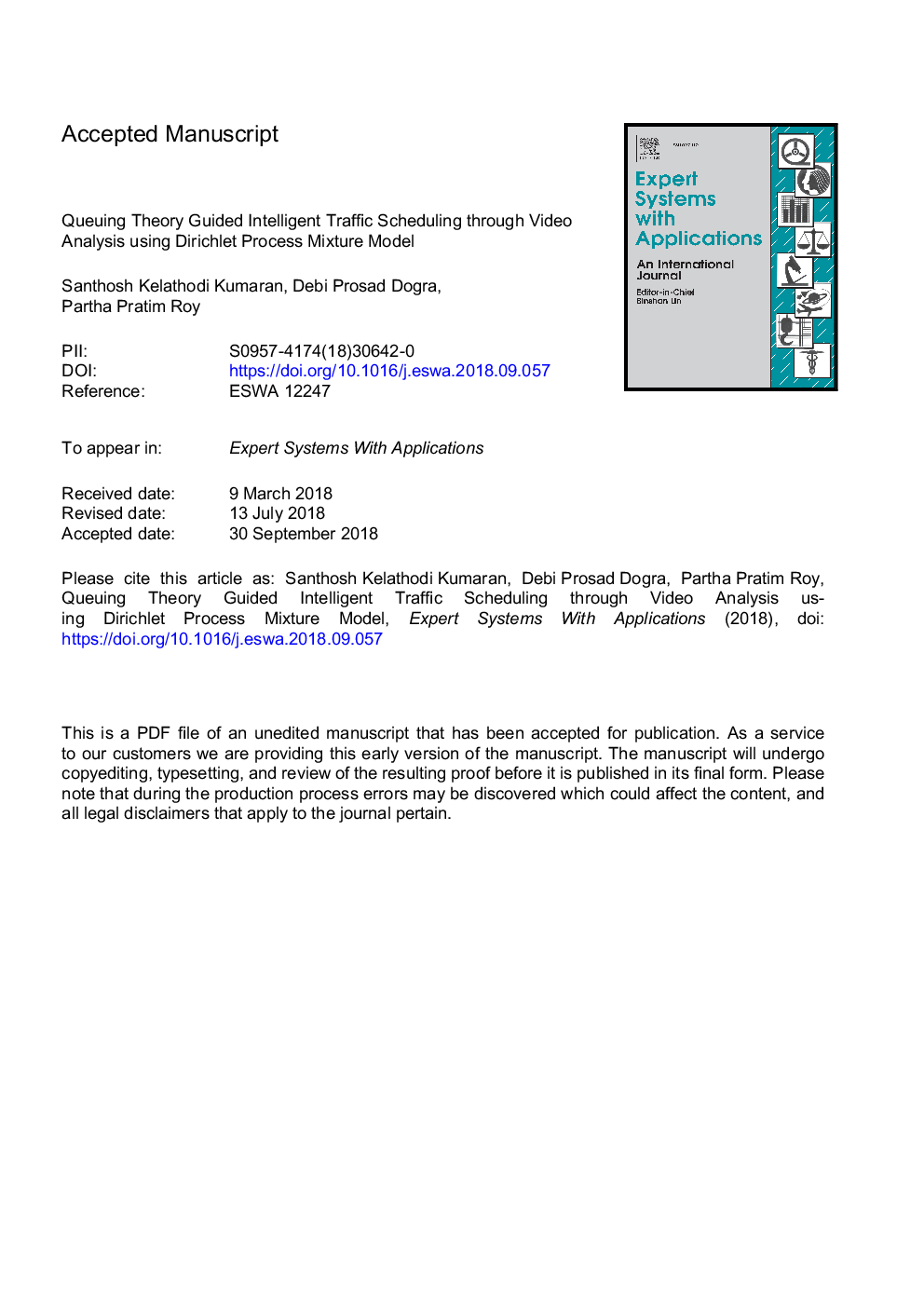| Article ID | Journal | Published Year | Pages | File Type |
|---|---|---|---|---|
| 11263014 | Expert Systems with Applications | 2019 | 38 Pages |
Abstract
Two publicly available video datasets, namely QMUL and MIT have been used for verification of the hypothesis. The mean absolute error (MAE) of the proposed method using tracklets has been reduced by a factor of 2.4 and 6.3 when compared with the tracks generated using Kernel Correlation Filters (KCF) and Kanade-Lucas-Tomasi (KLT), respectively. Through experiments, we are also able to establish that KCF and KLT tracks do not consider spatial occupancy of the vehicles on roads, leading to error in the estimation. The results reveal that the proposed queuing theory-based approach predicts the signal duration for the next cycle more accurately as compared to the ground truths. The method can be used for building intelligent traffic control systems for roadway junctions in cities and highways.
Related Topics
Physical Sciences and Engineering
Computer Science
Artificial Intelligence
Authors
Santhosh Kelathodi Kumaran, Debi Prosad Dogra, Partha Pratim Roy,
